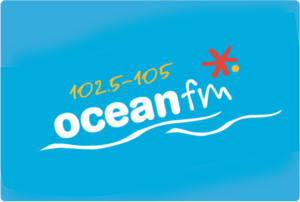
This week on Ocean FM we discussed how making changes to what we eat can reduce our contribution to greenhouse gases
Did you know…..
- Food systems account for about 23-42% of human produced GHG emissions globally, which, for example, easily outstrips the 3.5% caused by air travel
- Sugar-sweetened beverages are leading contributors to our dietary GHG emissions, due to their multiple ingredients and production practices, higher transport costs and single-use plastic packaging
- A large proportion of the Irish population exceeds their daily energy (calorie) needs. Reducing this back to recommended levels, could lead to a 11% reduction in GHG emissions
- Agriculture contributes over 37% of total GHG emissions in Ireland, higher than other EU countries.
- Almost half of Ireland’s dietary GHG emissions come from animal food products
- In terms of food, many people underestimate the impact of eating less meat and overestimate the impact of buying local, organic or unpackaged food. The recommended serving of red meat is 5 desert spoons of mince or three quarters of a burger patty. This will provide all protein, iron, zinc and vitamin B12 needs
- Bacteria in the soil fix nitrogen in the roots of legumes, meaning they need little or no nitrogen fertiliser, leading to low emissions
- By becoming vegetarian or eating fish instead of meat people can reduce the emissions produced as a result of their diet by almost 50%.
Why is this important?
- Although we want to tackle climate change our understanding of the relative contributors to climate change is low
- The average Irish adult’s daily diet exceeds planetary boundaries for Greenhous Gas Emissions by more than two times
- One in three Irish people do not realise that the agriculture sector is the main contributor to greenhouse gases in Ireland
- Irish research suggests that by just following our national food pyramid more closely we can noticeably reduce Ireland’s GHG emissions
- Red meat like beef and lamb, as well as processed meats like ham and sausages, contribute to over 22% of our Irish dietary GHG emissions
- Many nut producers are carbon negative – even after accounting for other emissions and transport. This is because tree nuts are expanding onto cropland, removing CO2 from the air
- Despite 300,000 species of plants having edible parts, just 20 species account for 90% of the world’s food, and just three species – wheat, maize and rice – provide over half, making us vulnerable if any of these crops fail.
What can I do?
- Try to cut down on fizzy and bottled drinks. Tap water is the most sustainable and healthiest source of hydration
- Consume a wide variety of fish and seafood from sustainable sources. Try to include a 140g portion twice a week, one of which is oily fish
- Reduce the amount of red and processed meat you eat to 350-500g per person per week
If you prefer a larger portion sizes just eat red meat fewer times in the week - Replace some of the meat that you would normally include in a stew or Bolognese with beans or lentils so that you get used to these foods and don’t miss the volume
- Minimise consumption of ultra-processed foods and drinks high in saturated and trans fats, sugar or salt
- Minimise air freighted, pre-packed and ready- prepared options, except where their use helps to reduce food waste from perishable fruit and vegetables – frozen or tinned vegetables are good options
- Recycle as much food waste as possible.
For more information
Fixing Food Together Report
https://climateandhealthalliance.wordpress.com/2023/05/16/fixing-food-together-report-launched/
Sligo Library
https://sligolibrary.ie/un-sustainable-development-goals/
Irish Heart Foundation
https://irishheart.ie/how-to-keep-your-heart-healthy/healthy-eating/
Love Food Hate Waste
https://www.lovefoodhatewaste.com


